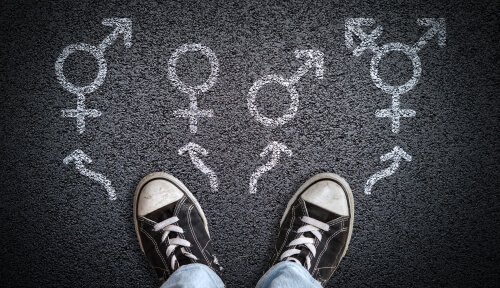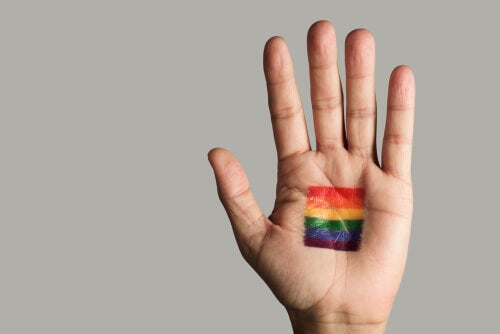Generation Z Aren't Afraid to Identify as LGBT

Today, sexual orientation is increasingly being expressed in a more open way. In fact, it’s Generation Z, those people who were born between the late 1990s and 2010, who recognize sexual diversity the most.
A poll conducted by Gallup in 2020 showed that one in six Americans who are part of Generation Z recognize themselves as LGBT. As a result, the percentage of non-heterosexual adults rose to 5.6 percent in the USA.
In addition, this study, which was conducted with 15 thousand people, served to demonstrate that acceptance is more frequent among young people. As a matter of fact, in this generation, 16 percent claimed to be LGBT. However, the figure decreased to 9.1 percent among millennials and barely reached two percent in the older generations.
In addition, a survey conducted by Ipsos Mori this year with 1,005 seniors from the United States, Hawaii, and Alaska, reached similar conclusions. In this survey, it was perceived that the percentage of heterosexuals in generation Z is 52 percent, while in baby boomers it reaches 84 percent.

Bisexuality is the predominant condition
The Gallup poll also showed that the category of bisexual people is the largest of all LGBT people. Indeed, 54 percent of the individuals acknowledged that they identified with that option.
The younger generation is also the one with the most incidences of bisexuality. In fact, 72 percent of Generation Z who said they were LGBT, claimed they were actually bisexual. Furthermore, one of the latest Ipsos studies reinforces the idea, since it found that young people of Generation Z tend to know more bisexual or transgender people than other groups.

The importance of recognizing identities without fear
The freedom to openly express different ways of loving brings multiple benefits. One of them is at the mental health level since young people no longer tend to hide what they feel. In addition, they’re generally able to converse with their parents about the subject and to find support.
Furthermore, a large number of events have emerged that focus on promoting equality and respect. Because of this, over recent years, bullying and taboos have been reduced.
Today, sexual orientation is increasingly being expressed in a more open way. In fact, it’s Generation Z, those people who were born between the late 1990s and 2010, who recognize sexual diversity the most.
A poll conducted by Gallup in 2020 showed that one in six Americans who are part of Generation Z recognize themselves as LGBT. As a result, the percentage of non-heterosexual adults rose to 5.6 percent in the USA.
In addition, this study, which was conducted with 15 thousand people, served to demonstrate that acceptance is more frequent among young people. As a matter of fact, in this generation, 16 percent claimed to be LGBT. However, the figure decreased to 9.1 percent among millennials and barely reached two percent in the older generations.
In addition, a survey conducted by Ipsos Mori this year with 1,005 seniors from the United States, Hawaii, and Alaska, reached similar conclusions. In this survey, it was perceived that the percentage of heterosexuals in generation Z is 52 percent, while in baby boomers it reaches 84 percent.

Bisexuality is the predominant condition
The Gallup poll also showed that the category of bisexual people is the largest of all LGBT people. Indeed, 54 percent of the individuals acknowledged that they identified with that option.
The younger generation is also the one with the most incidences of bisexuality. In fact, 72 percent of Generation Z who said they were LGBT, claimed they were actually bisexual. Furthermore, one of the latest Ipsos studies reinforces the idea, since it found that young people of Generation Z tend to know more bisexual or transgender people than other groups.

The importance of recognizing identities without fear
The freedom to openly express different ways of loving brings multiple benefits. One of them is at the mental health level since young people no longer tend to hide what they feel. In addition, they’re generally able to converse with their parents about the subject and to find support.
Furthermore, a large number of events have emerged that focus on promoting equality and respect. Because of this, over recent years, bullying and taboos have been reduced.
All cited sources were thoroughly reviewed by our team to ensure their quality, reliability, currency, and validity. The bibliography of this article was considered reliable and of academic or scientific accuracy.
- Ipsos Mori. Sexual orientation and attitudes to LGBTQ+ in Britain [Internet]. Londres: Ipsos Mori; 2020 [citado 04 de agosto de 2021]
- Barker M. Richards C. Jones R. Catton H. Plowman T. Yockney J. Morgan M. Inglaterra: The Open University; (S.F) [citado 04 de agosto de 2021]
This text is provided for informational purposes only and does not replace consultation with a professional. If in doubt, consult your specialist.







